Is Plant-Based Milk Healthy: Oatly, NotMilk, Ripple and More
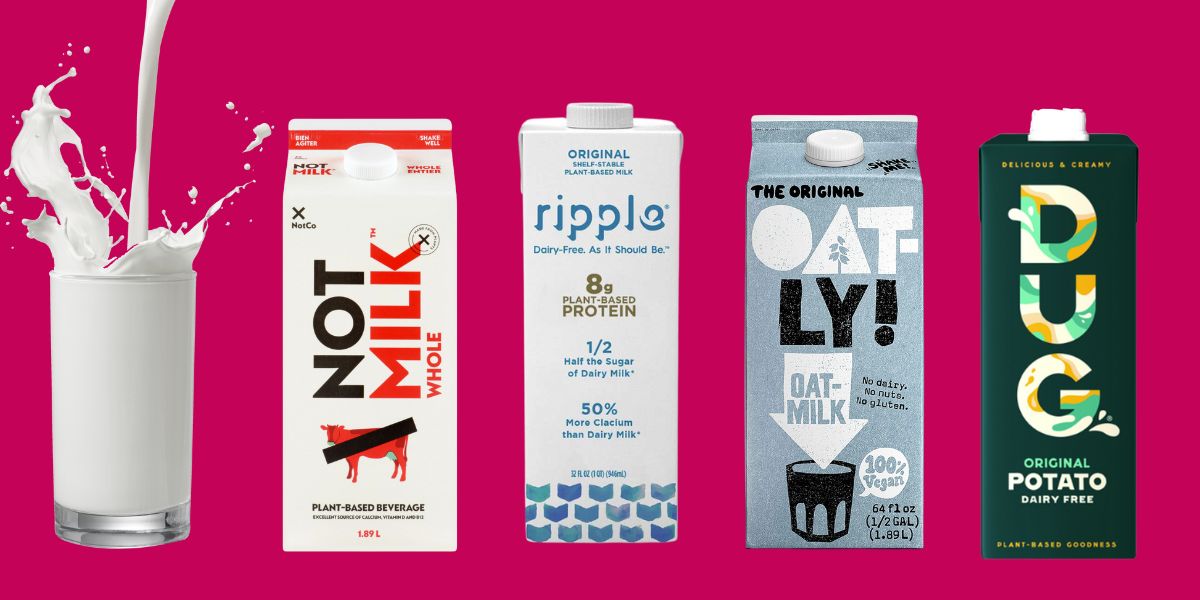
Several weeks ago, I received a text from a friend asking me if I’d heard of a product called ‘NotMilk’ – and what I thought about it. I’m always happy to share my opinion on packaged foods and as many of you know, I’m not shy about it! And so, I thought it was time to revisit plant-based milk and dairy-free milk options, and whether they are beneficial to our health or a load of hooey.
We don’t drink dairy milks in my family. Not for the reason that I believe ethically raise and pastured cattle are killing the planet, but because dairy triggers eczema, diarrhea, seasonal allergies and impaired cognitive function in my household (you get to guess who gets what!).
As I haven’t wandered down the dairy-free milk aisles in years, I discovered there are a lot of new products on the market making a lot of healthwashing claims and way too much ‘start-up’ venture capital pushing the message on the masses (we’re talking billions!)
>>>Click here to get your in-depth guide to making real plant-based milks from scratch.
the plant-based milk industry
Plant-based milk is big business. Globally, the market for milk alternatives is currently worth close to $21 billion dollars, and that number is projected to rise to $37 billion by 2026.
Gone are the days when soy milk and almond milk were the only options. Dairy-free milk choices now include all kinds of nuts and seeds, beans and legumes, potatoes, grains and pseudograins (buckwheat, oat, rice, etc.), and coconut. Mostly they contain processed oils derived from genetically modified plants and heavily sprayed crops. But I’m getting ahead of myself.
In the US, consumers spend $2.9 billion annually on dairy-free milk; here in Canada, it’s $138 million – and those numbers are predicted to rise. And almost 40% of households now have a plant-based milk brand sitting in their fridge.
Long-established brands like Silk and Blue Diamond are still leading the sales pack, but newer alternatives like oat milk (Oatly) and pea milk are quickly gaining ground.
Let’s take a look at some of these plant-based milk alternatives, and whether they are as health-building as they claim to be.
notmilk
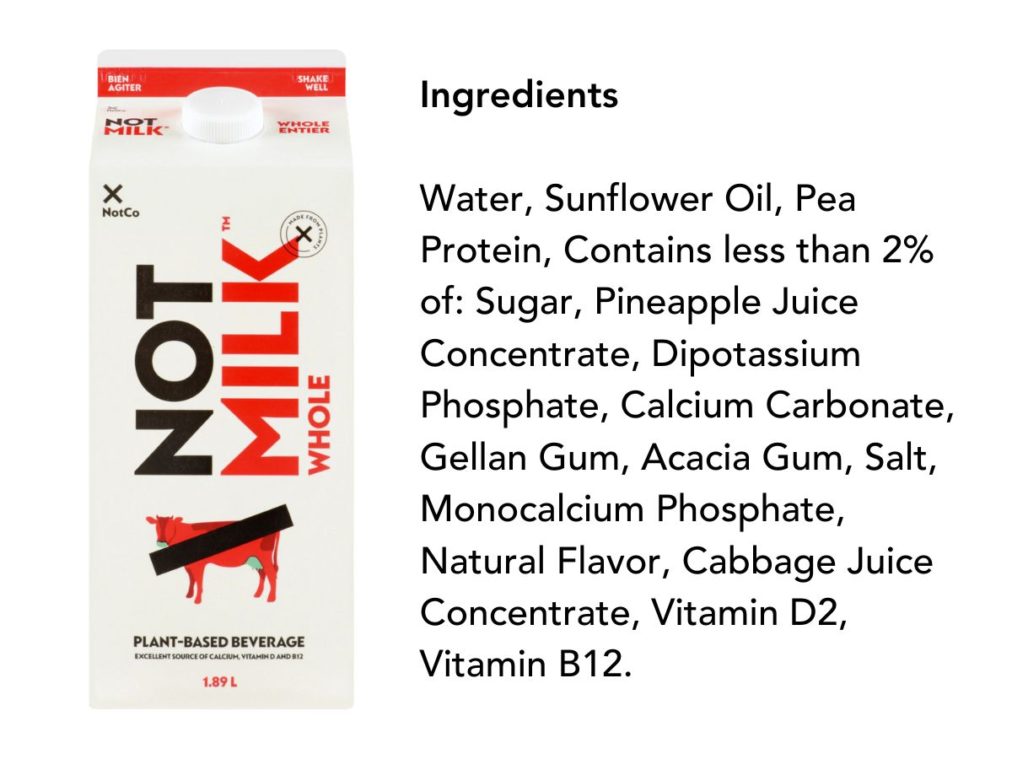
NotCo is a tech startup that uses an artificial intelligence (AI) program to formulate recipes that replicate animal products and dairy milk (they’ve nicknamed their AI Giuseppe- insert massive eye roll from me ????).
They have a plant-based burger, NotBurger, and a pea-based ‘plant’ milk called NotMilk. The word ‘plant’ is in quotes because of what actually makes up this milk.
Product claims:
- ‘sips, slurps and froths like milk’
- 100% plant-based
- 74% less energy used
- 92% less water used
- 74% less CO2 generated
Let’s take a look at the ingredient list for Whole NotMilk:
Water, Sunflower Oil, Pea Protein, Contains less than 2% of: Sugar, Pineapple Juice Concentrate, Dipotassium Phosphate, Calcium Carbonate, Gellan Gum, Acacia Gum, Salt, Monocalcium Phosphate, Natural Flavor, Cabbage Juice Concentrate, Vitamin D2, Vitamin B12.
Basically what we’re looking at here is water, oil and processed pea protein. Their choice of oil isn’t my favourite, as it’s a highly industrialized oil that has inflammatory properties and doesn’t support our health.
As for NotMilk’s environmental claims, in addition to the ones listed above they have a sustainability calculator. You can calculate how much water, energy and CO2 you save based on how many servings of their products you consume daily (they claim you can save 25 miles traveled, 12 hours of lamplight and 275 gallons of water by drinking NotMilk once a day).
All of their sustainability statistics and claims come from a ‘NotCo internal audit, 2020’, which I was unable to find anywhere. So consumers have no idea what they are basing those metrics on (perhaps Giuseppe is behind it).
ripple foods
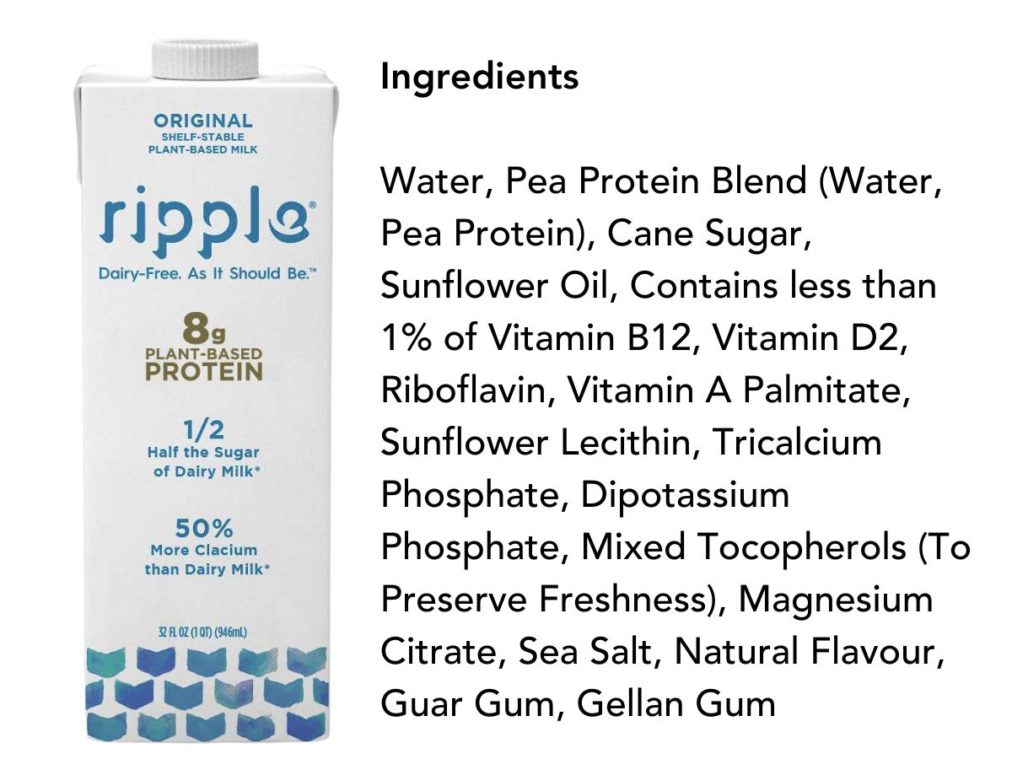
This pea milk start up began in 2016 and since then, has raised $250 million from investors and you can find it in 20,000 grocery stores. Its CEO claims that their sales have grown 20% year after year. One of the co-founders is the creator of the popular cleaning brand Method.
Product claims:
- 8 g plant-based protein per serving
- 50% more calcium than dairy milk
- half the sugar of dairy milk (when compared to 2%)
- excellent source of Vitamin D
Let’s take a look at the ingredients for their shelf-stable original product:
Water, Pea Protein Blend (Water, Pea Protein), Cane Sugar, Sunflower Oil, Contains less than 1% of Vitamin B12, Vitamin D2, Riboflavin, Vitamin A Palmitate, Sunflower Lecithin, Tricalcium Phosphate, Dipotassium Phosphate, Mixed Tocopherols (To Preserve Freshness), Magnesium Citrate, Sea Salt, Natural Flavour, Guar Gum, Gellan Gum
So again – we’ve got a mix of water, pea protein and oil. And a whole bunch of extras like sugar, emulsifiers, anti-caking agents, and natural flavours.
The fact that this product has 8 grams of protein isn’t the biggest deal, when you consider the amount of protein in the following whole foods:
- Hemp seeds: 9g for 1 ounce (about 2 Tbsp)
- Almond butter: 6 g for 1 ounce
- Quinoa: 8 grams per cup
- Tempeh: 15.5 g per 1/2 cup
- Lentils: 9g per 1/2 cup
- Spinach: 5 g per cooked cup
- Oats: 6.9 per cup
- Green peas: 8.5g per cooked up
And while I realize that not everyone can consume common allergens like soy or nuts, there are plenty of plant-based whole food protein options available.
Ripple Foods claims to be an ‘excellent source’ of Vitamin D. However, it contains 6 micrograms, which amounts to 240 IUs. This is well below the amount needed to maintain and support health, and I’d hardly use the word ‘excellent’ to describe it.
As for its calcium claims, Ripple is fortified with calcium in the US but not in Canada due to Canada’s regulations. I’m also unsure of what form of calcium is in Ripple, as it’s not stated on the label. Ripple claims its milk contains a bioavailable form, and one could make the assumption that they’re saying it’s bioavailable due to the form of pea protein – but as consumers, we don’t know.
And let’s not forget about the added sugar – 6g, which is 1 1/2 teaspoons per serving. Not a huge amount compared to other plant-based milk products, but it can add up if you’re consuming several servings per day (there is an unsweetened version as well).
It may have half the sugar of dairy milk by grams, but keep in mind that if someone consumes plain 2% milk that sugar is in the form of lactose contained in a whole food – not an added sugar.
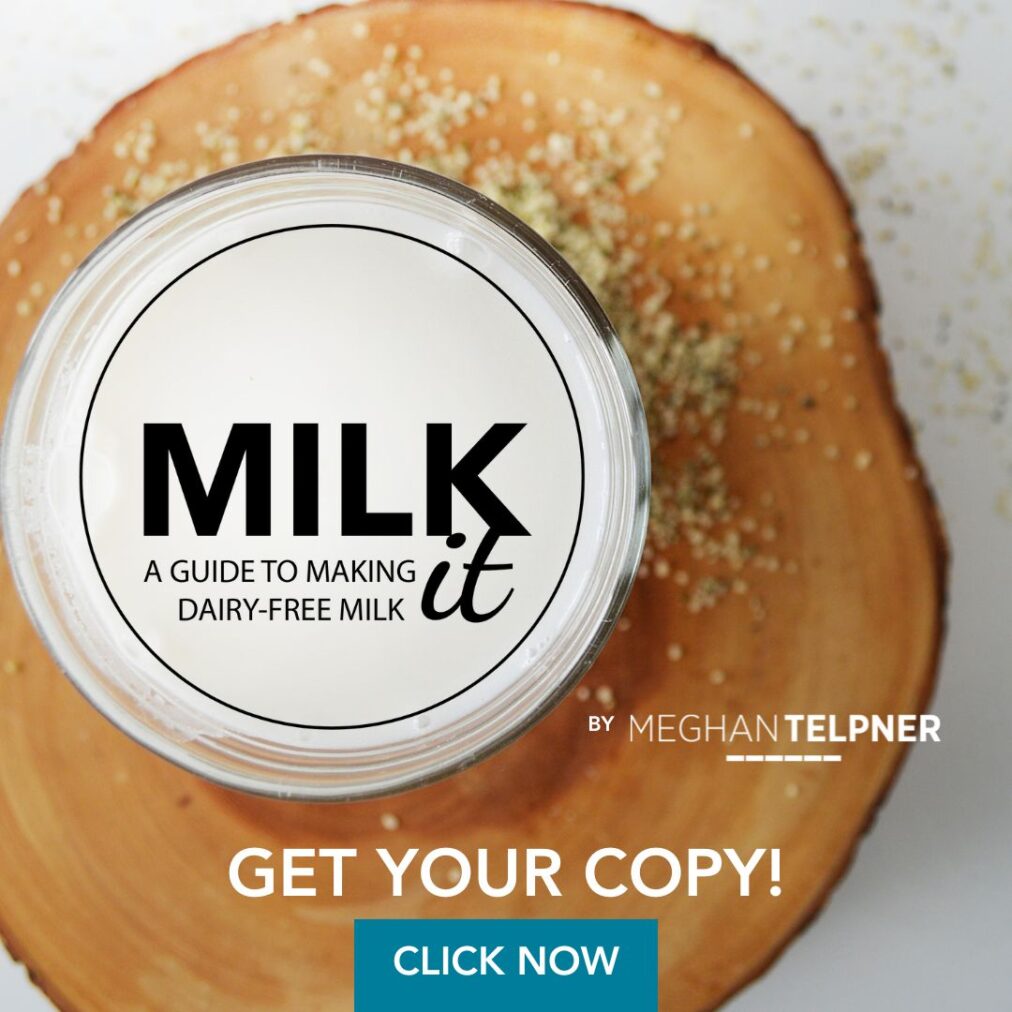
oatly
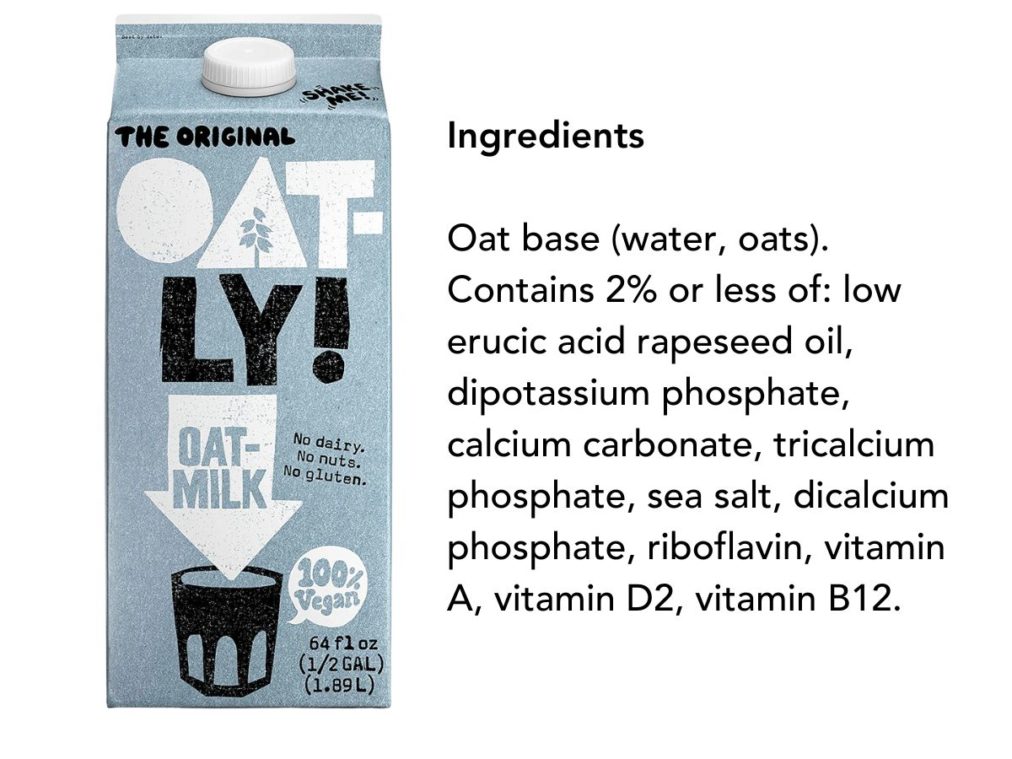
Oat milk is one of the newer types of plant-based milk and its sales are soaring. Oatly, a Swedish company, is one of the leaders in sales and popularity.
Product claims:
- enriched with vitamins
- enriched with calcium
- a source of beta glucans
- allergen-friendly
Let’s look at the ingredient list of The Original Oatly Milk:
Oat base (water, oats). Contains 2% or less of: low erucic acid rapeseed oil, dipotassium phosphate, calcium carbonate, tricalcium phosphate, sea salt, dicalcium phosphate, riboflavin, vitamin A, vitamin D2, vitamin B12.
I’m feeling a bit like a broken record here, as this product contains oats, oil (canola oil) and water – with emulsifiers. Its form of calcium, calcium carbonate, is one of the least bioavailable forms of calcium for humans.
Oatly has been criticized recently for its sugar content, 7g per serving. While there are no sugars in the ingredient list, they use a custom enzymatic process to break the oats down into maltose so it will be smooth and creamy. These simple sugars are high on the glycemic index, and need to be labelled as added sugars due to labelling rules.
Oatly has also come under fire for its connection to slave labour.
DUG Potato Milk
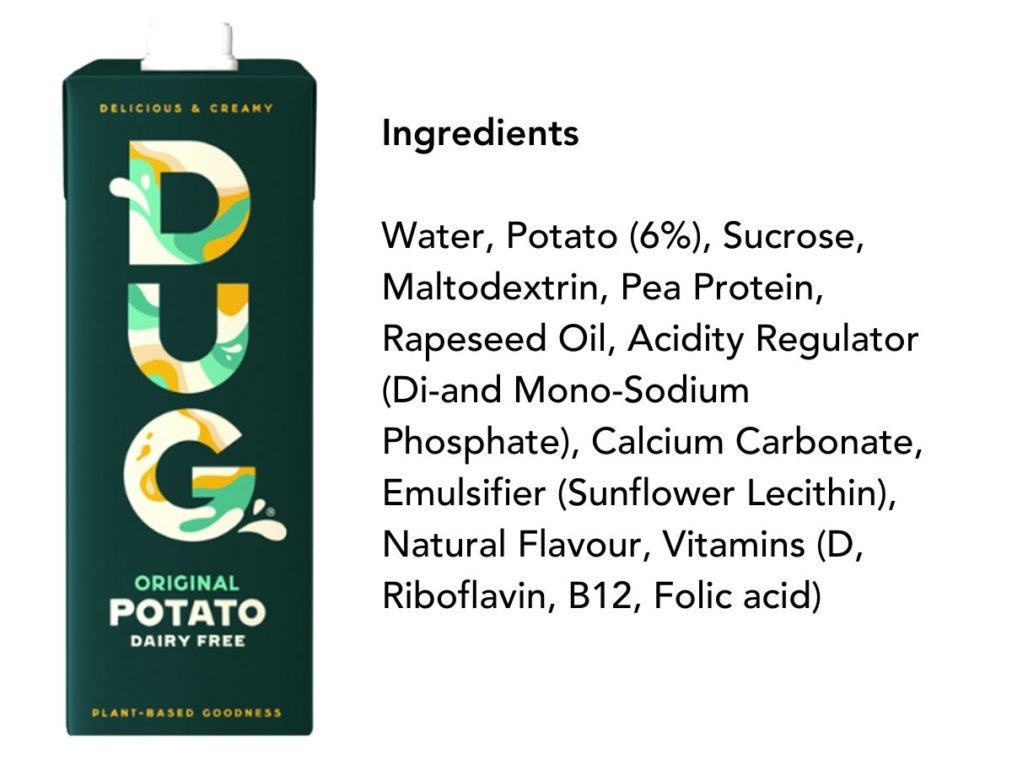
This option isn’t available in North America yet, but some predict it’s poised to be the next big thing in plant-based milk alternatives. It’s another Swedish brand that promotes its low carbon footprint.
Product claims:
- smooth consistency that won’t separate
- vegan
- made with potatoes, and full of vitamins, minerals, fibre, protein and carbohydrates from them
- sustainable
Let’s look at the ingredient list for Dug Original:
Water, Potato (6%), Sucrose, Maltodextrin, Pea Protein, Rapeseed Oil, Acidity Regulator (Di-and Mono-Sodium Phosphate), Calcium Carbonate, Emulsifier (Sunflower Lecithin), Natural Flavour, Vitamins (D, Riboflavin, B12, Folic acid)
Once again, we’re looking at a product that is mostly water, along with sugar, oils, emulsifiers and non-bioavailable calcium. Dug claims that it’s packed with nutrition because it’s made with potatoes, but as just one example – you only get 1.1 grams of fibre in a serving, which is a fraction of what you’d get if you ate a whole baked potato.
>>>Click here to get your in-depth guide to making real plant-based milks from scratch.
Plant-based milk and sustainability
Most plant-based milk brands market themselves as a healthier, more environmentally-friendly alternative when compared to dairy milk or to other plant-based products (the pea milks say they’re more sustainable than almond milk, potato milk says they’re better than oats, etc). And there is research that backs up this claim.
However, we also need to remember that mono-crops, especially those that use a massive amount of pesticides and herbicides, are harmful to the environment too. To read more about this, the site Global Food Justice is a great resource.
And let’s not forget about the packaging of dairy-free milk alternatives. Plant-based milk packaging may have a lesser impact on the environment, but less doesn’t necessarily equate to good. We’re still buying a single-use package that probably won’t ever get recycled.
Remember: With all of the claims made about ‘net zero’ and energy saved, in most cases, the company or government as the case may be, is deciding when and where the math begins and ends.
Are they taking into account what goes into growing massive mono-crops of peas, what is sprayed on them, how this chemical load affects top soil, run off into waterways, the health of neighbouring communities, or nitrogen fixing measures? Does it take into account the manufacturing of the packaging and then the disposal of said packaging? The shipment of all ingredients, and package components to the factory, then to your local store and then to your home? See, it’s complicated.
are we bio-hacking our lives away?
I find it an interesting aside that many of these dairy-free milk and plant-based meat companies are tech startups and business ventures, designed for people who want to optimize their nutrition without the pesky inconvenience of cooking their food.
Humankind used to spend a lot of time growing, hunting, harvesting and cooking food. I’m not saying that we all need to return to that mindset, but there are certainly ways to cook with healthful, fresh foods without a constant reliance on ultra-processed foods.
What would happen if all of these brilliant minds creating dairy-free milks put that effort, time, money and resources into improving food security and food access, so more people could eat health-building foods?
making your own plant-based milk
A delicious, easy and environmentally-friendly way to enjoy plant-based milks is to make them yourself when possible. This is one of the first skills I teach in the Culinary Nutrition Expert Program, and my students are always amazed at how simple the process is. Once they start making them at home, it’s hard to go back to store-bought.
Homemade dairy-free milk is quick, easy to batch prep, is package-free and you can 100% control all the ingredients that go into it.
Learn how to make basic milk here, and oat milk here. You can also grab your free copy of my Dairy-Free Milk It Guide, which has a bunch of tasty ways to flavour your dairy-free milk.
The Bottom Line
I’m all for people consuming less factory-farmed meat and eating more plant-based foods, but are highly processed plant-based milks the solution? What if we called them what they really are: Homogenized and Enriched Oil Beverages. Yummy!
How about we eat more fruits, vegetables, seaweeds, gluten-free grains, nuts, seeds, beans and legumes if we want to follow a plant-rich diet, rather than pinning our nutritional and environmental hopes on diluted water and oil?
>>>Click here to get your in-depth guide to making real plant-based milks from scratch.
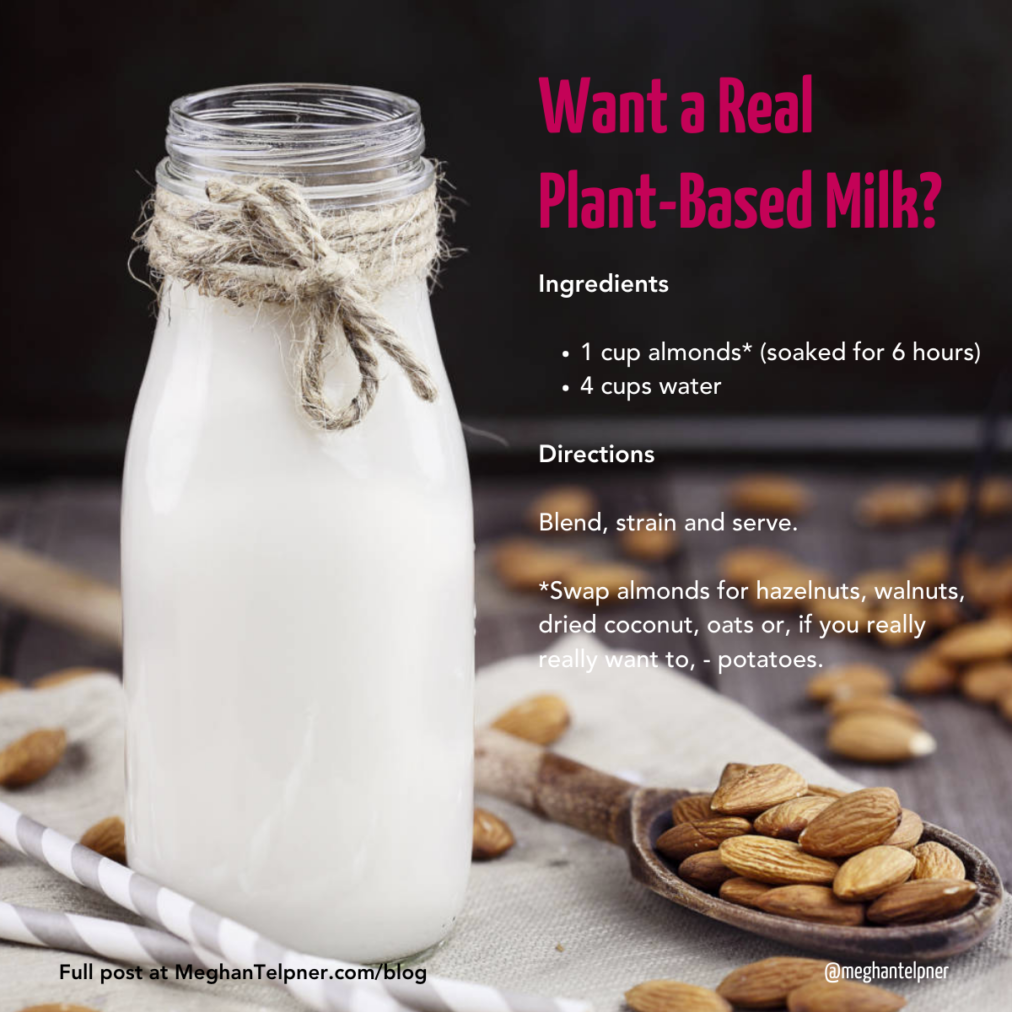
Free Resource Library
Enjoy more than 40 downloadable guides, recipes, and resources.















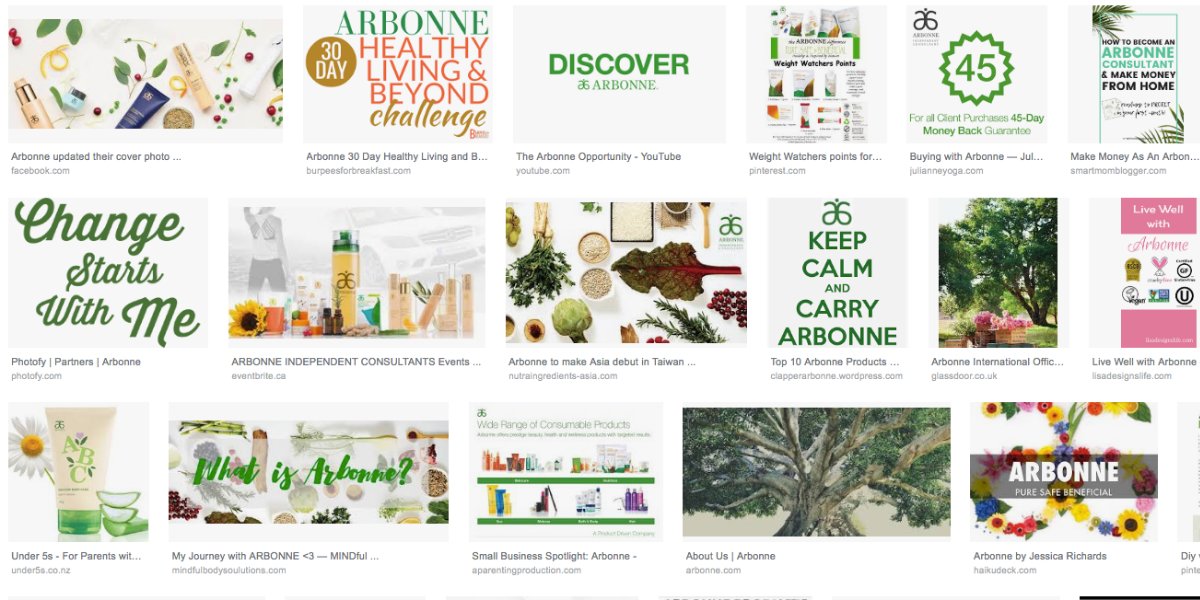


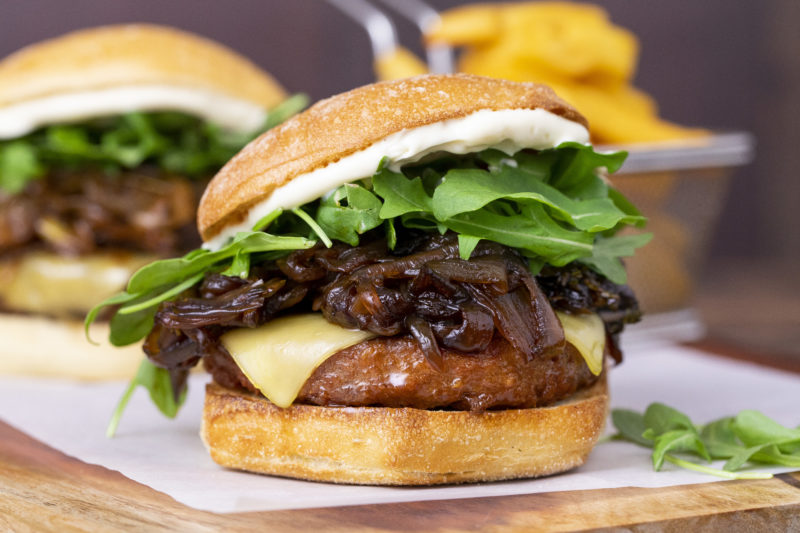
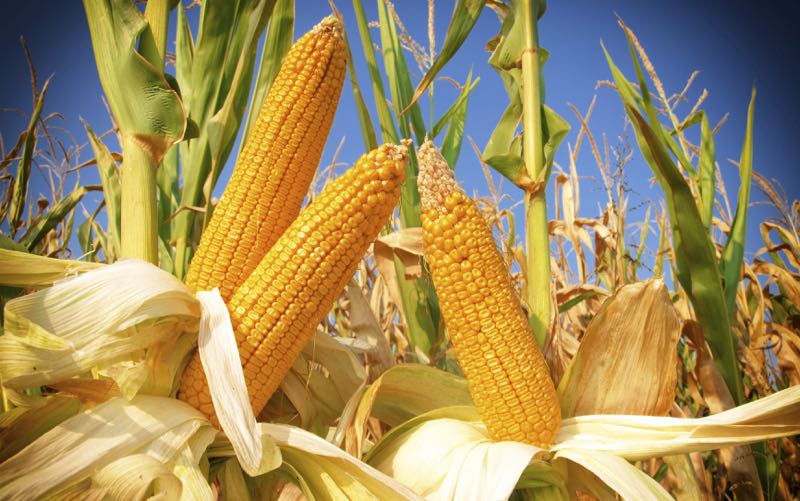
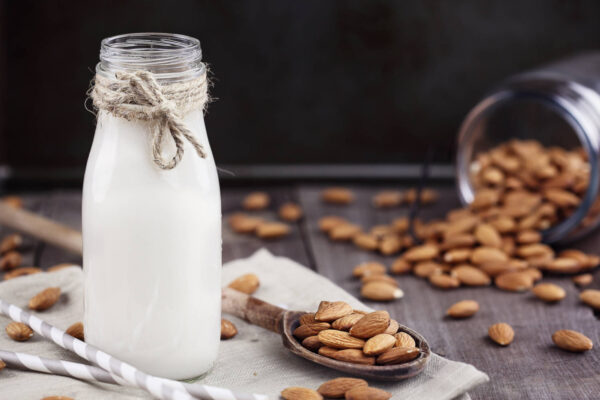


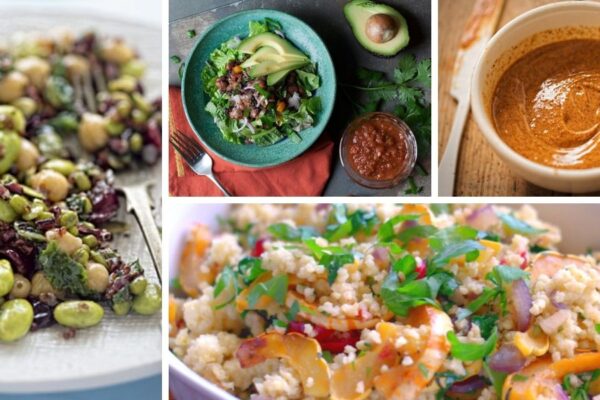
Woowhoo…She is back! I absolutely love Meghan’s info. So happy you took time to recoup and regroup.
Tk you Meghan for continually educating us in a factual way. When I see products like above, my instinct tells me they are not good but I can’t always explain why as there marketing and false claims can bamboozle me.
Thank you for always breaking down these products for us. Whenever I read one of your articles demystifying products, I want to shout it from the roof tops for people to read what you have to say and for them to pay attention!
I agree on making your own, but in a pinch: It’s bonkers expensive, but Elmhurst unsweetened plant based milks are delicious with an ingredient list of only nuts and water. My nutritionist also mentioned Malk Organics. I haven’t tried, but the ingredient list looks clean.